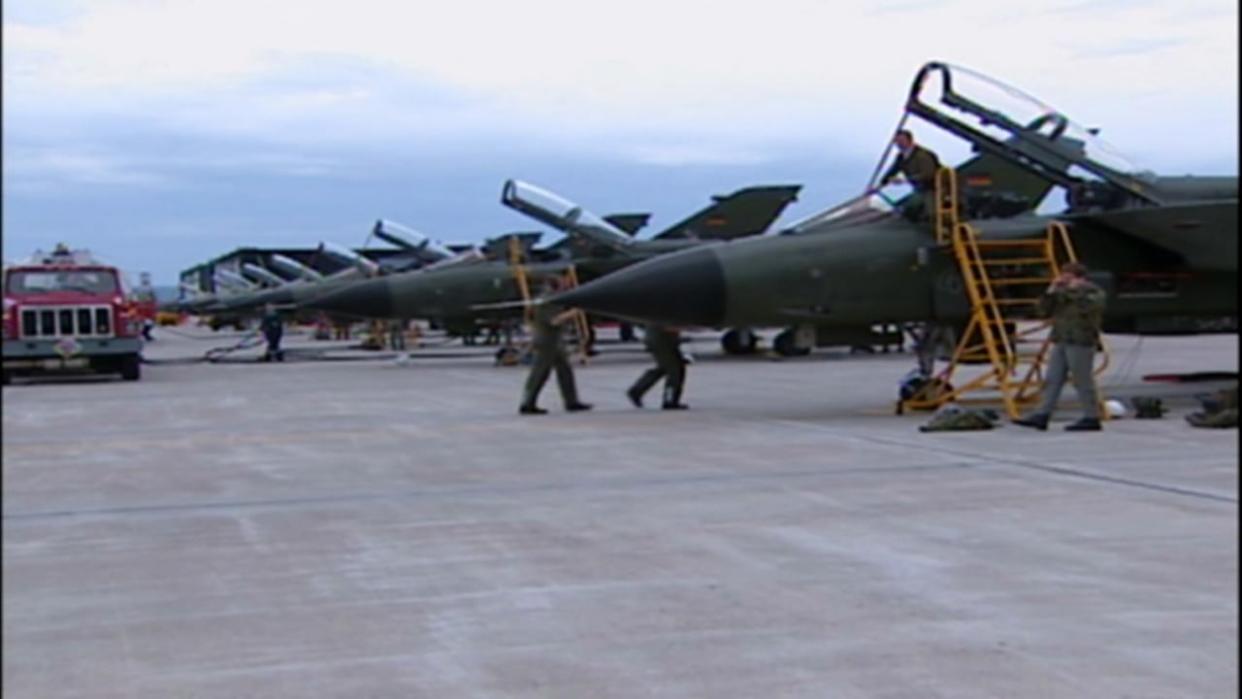Hundreds of German soldiers train in Labrador every winter — here's why


German air force tornado planes parked on the tarmac in Labrador in 2005. German soldiers have been back to train in the Big Land for the last decade or so, says German army commander Col. John Bauer. (Tony Dawson/CBC)
Rugged terrain, extreme cold, and unpredictable weather — it's the ultimate obstacle course in nature's boot camp, and the perfect training ground for Germany's army.
"We come here on a regular basis and we always extend our training in Labrador," German army commander Col. John Bauer said in a recent interview with CBC's Labrador Morning.
Every winter, hundreds of German soldiers set foot on the Big Land for six to eight weeks to complete demanding, and sometimes gruelling, winter warfare training.
In different areas around 5 Wing-Goose Bay, Canada's air force base in Happy Valley-Goose Bay, soldiers practise parachute jumps and do tactical training on skis and snowmobiles.
Listen | German army commander shares his favourite parts of training in Labrador:
Bauer said Germany has used various facilities in the Labrador for 10 to 15 years and the soldiers have a good relationship with residents and people at the Canadian Armed Forces base.
"Everybody is so kind to us," he said. "We are really enjoying the time here."
Why Labrador?
Bauer says Labrador has a good variety of training areas. The frigid temperatures and rugged terrain also make for the perfect winter training grounds.
Not only does training in Labrador teach soldiers to survive in unique environments, said Bauer, it also prepares them to successfully complete a variety of tasks that couldn't be learned elsewhere.
For instance, soldiers practise how to jump out of planes in –30 C temperatures, far colder than what soldiers would experience back home. During tasks like these, he says, the weather is the best drill sergeant.

German military personnel, seen here getting off a bus in Labrador in 2000, train in Labrador because of its austere environment, says Bauer. (Tony Dawson/CBC)
One of Bauer's favourite memories is ski practice. Soldiers are required to carry heavy equipment and weapons while skiing downhill. One day, he said, a lot of his soldiers fell down the hill, one after the other, their equipment rolling down alongside them.
Soldiers headed back to Germany, where they'll have the opportunity to relax and spend time with family, mid-February, Bauer said, while parachute training continued after a brief rest.
Next year, he said, they'll be back in Labrador, which has become a friendly and familiar place for many of the soldiers.
"We cannot do it anywhere else," said Bauer. "It's like coming home again for a lot of [the] guys."
Download our free CBC News app to sign up for push alerts for CBC Newfoundland and Labrador. Click here to visit our landing page


